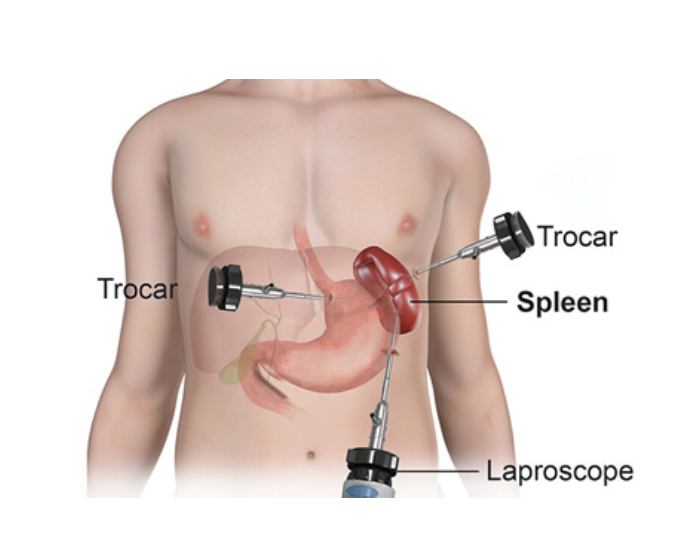Overview
Splenectomy is a surgical procedure to remove your spleen. The spleen is an organ that sits under your rib cage on the upper left side of your abdomen. It helps fight infection and filters unneeded material, such as old or damaged blood cells, from your blood.
The most common reason for splenectomy is to treat a ruptured spleen, which is often caused by an abdominal injury. Splenectomy may be used to treat other conditions, including an enlarged spleen that is causing discomfort (splenomegaly), some blood disorders, certain cancers, infection, and noncancerous cysts or tumors.
Splenectomy is most commonly performed using a tiny video camera and special surgical tools (laparoscopic splenectomy). With this type of surgery, you may be able to leave the hospital the same day and recover fully in two weeks.
consult Dr. Ujwal Zambare Best Gastroenterologist and laparoscopic surgeon in Wakad, Pune.

Why it's done
Splenectomy is used to treat a wide variety of diseases and conditions. Your doctor may recommend splenectomy if you have one of the following:
- Ruptured spleen. If your spleen ruptures due to a severe abdominal injury or because of an enlarged spleen (splenomegaly), the result may be life-threatening, internal bleeding.
- Enlarged spleen. Splenectomy may be done to ease the symptoms of an enlarged spleen, which include pain and a feeling of fullness.
- Blood disorder. Blood disorders that may be treated with splenectomy include idiopathic thrombocytopenic purpura, polycythemia vera and thalassemia. But splenectomy is typically performed only after other treatments have failed to reduce the symptoms of these disorders.
- Cancer. Cancers that may be treated with splenectomy include chronic lymphocytic leukemia, Hodgkin’s lymphoma, non-Hodgkin’s lymphoma and hairy cell leukemia.
- Infection. A severe infection or the development of a large collection of pus surrounded by inflammation (abscess) in your spleen may require spleen removal if it doesn’t respond to other treatment.
- Cyst or tumor. Noncancerous cysts or tumors inside the spleen may require splenectomy if they become large or are difficult to remove completely.
Risk Factors
Splenectomy is generally a safe procedure. But as with any surgery, splenectomy carries the potential risk of complications, including:
- Bleeding
- Blood clots
- Infection
- Injury to nearby organs, including your stomach, pancreas and colon
For expert Splenectomy Surgery in Wakad, Pune, consult Dr. Ujwal Zambare, a highly experienced Gastroenterologist & Surgeon at True Life Clinic & Wellness Center. Dr. Zambare specializes in minimally invasive laparoscopic splenectomy, ensuring faster recovery and precise treatment for conditions like splenomegaly, ruptured spleen, blood disorders, and tumors.📞 Request a consultation today! Call: 098159 94279 for appointments and expert care.
